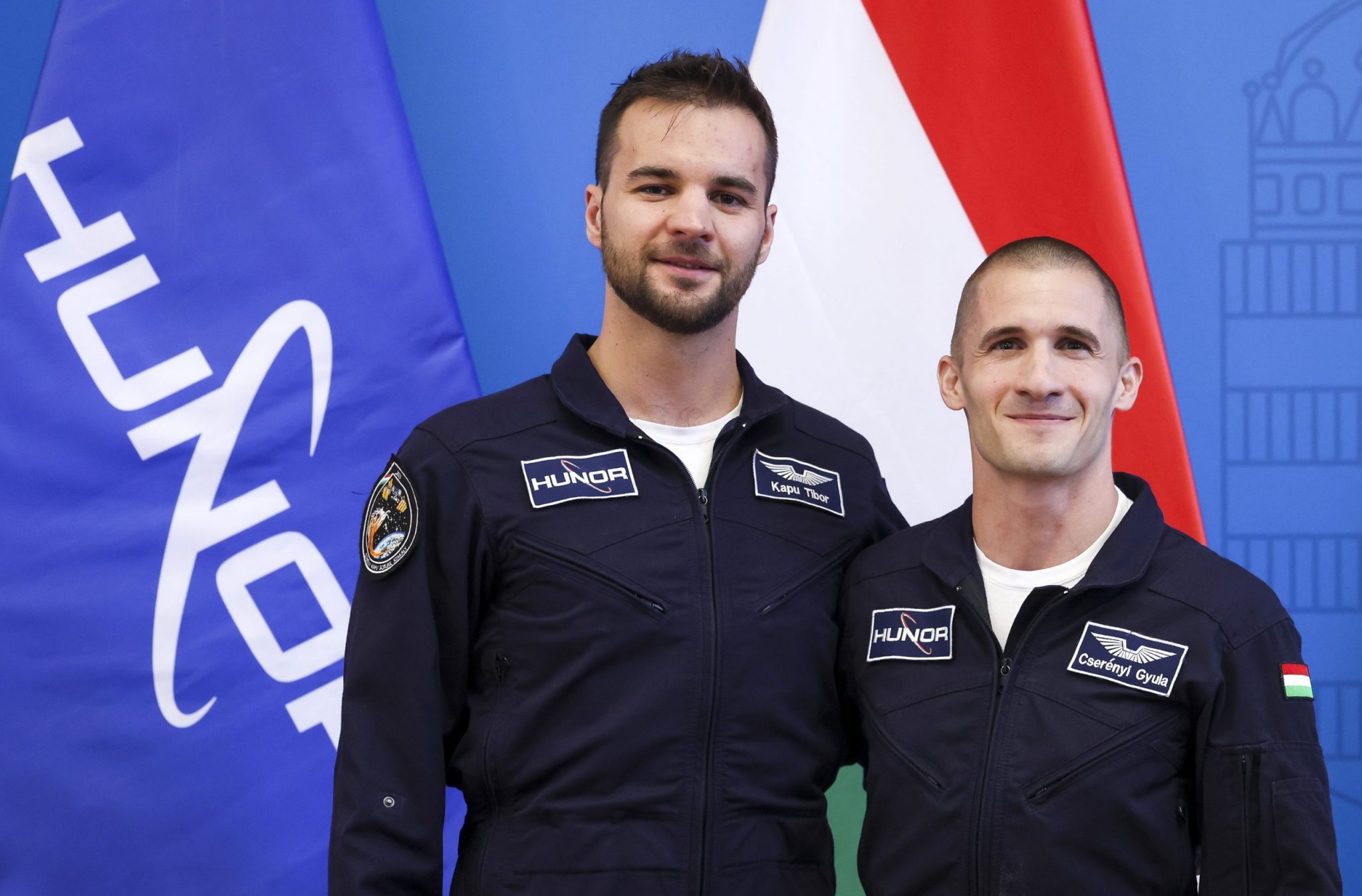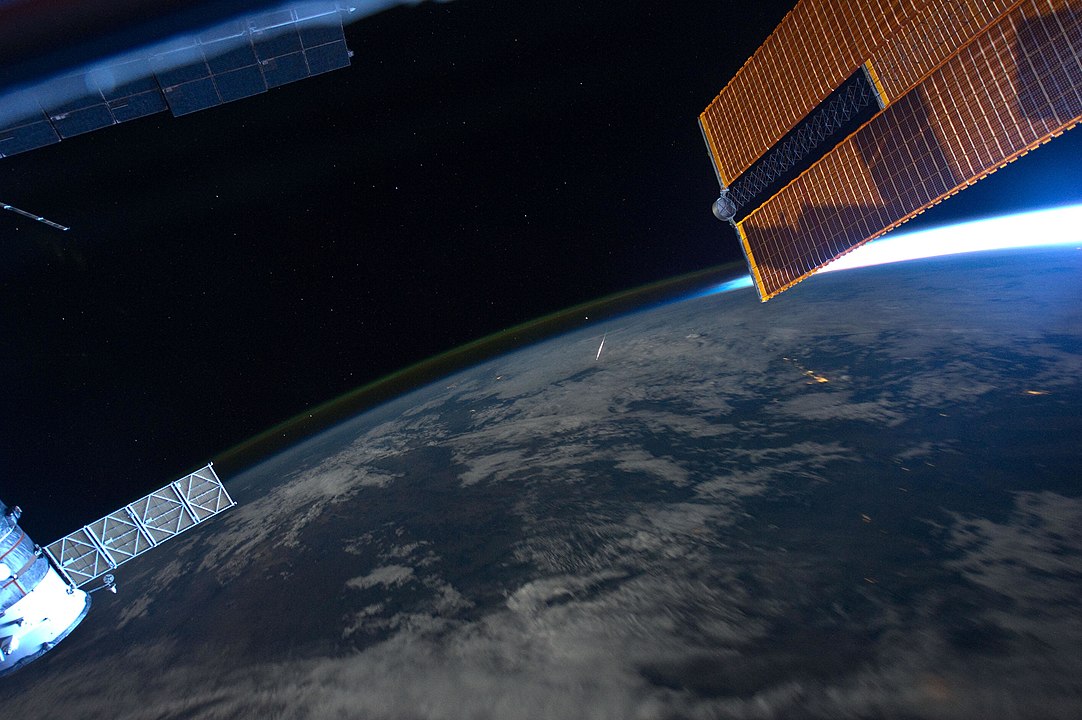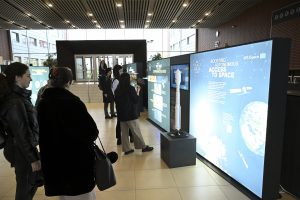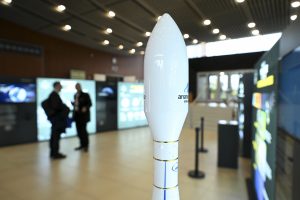
The mission is expected to launch next spring.Continue reading

On Wednesday and Thursday, the Budapest University of Technology and Economics (BME) hosted the EU Space Days, the most important forum for experts and companies involved in the European Union’s space research and industry programs.
The two-day event, organized under the Hungarian Presidency of the Council of the European Union, brought together over 300 experts from 13 different countries, including space exploration and industry leaders and companies, to share their thoughts on the latest trends in space technology and innovation.
The EU Space Days 2024 aimed to showcase the latest developments in space technology, strengthen international cooperation, and highlight the importance of innovation in European space research and industry.
In this way, the event represented an important milestone not only for Hungary, but for Europe as a whole, the Ministry for National Economy said in a statement.

Photo: MTI/Koszticsák Szilárd
The event focused on the European Union’s space programs, in particular Galileo, Copernicus, and IRIS2, which are not only shaping the future of space, but that also play a key role in Europe’s green transition and digital development.
In his speech, Richárd Szabados, State Secretary for the Development of Small and Medium-sized Enterprises and Technology, stressed: “Hungary is convinced that through cooperation we can achieve significant results in the field of space, which is crisis-resistant and already provides high added value jobs for more than 230,000 people in Europe alone.
Experts estimate that by 2040, the space economy will be worth around 1 trillion US dollars – a figure from which neither Europe nor Hungary can afford to be left out.
EU Space Days is further proof that by sharing common goals, innovation, and strengthening international relations, we can become a major player not only in Europe but also globally.”

Photo: MTI/Koszticsák Szilárd
The conference also discussed the future priorities of the EU and ESA (European Space Agency): increasing competitiveness, sustainability, and support for new research programs such as Horizon Europe and CASSINI. All this has contributed to strengthening international relations and to solving challenges facing the space industry, such as the problem of space debris, an area that Hungarian companies have been actively involved in through ESA programs.
Speakers at the EU Space Days highlighted the importance of close cooperation with the ESA and the European Union’s Agency for Space Program, as well as the role of Hungarian companies in the international value chain.
Space entrepreneurship and innovation are:
➡️multiplying return on investments across different segments of the economy
➡️transforming the overall economy, with its increasing size.This is why supporting space entrepreneurship is one of the key objectives of #EUSpace Programme pic.twitter.com/UxxXy0meZM
— DG DEFIS #StrongerTogether (@defis_eu) November 21, 2024
They presented Hungary’s latest achievements, that further strengthen the country’s position in the international arena. In the field of education, 17 Hungarian universities are working together under the UniSpace program to expand space science training to ensure a supply of professionals and strengthen international knowledge transfer.
In addition, one of the Hungarian government’s priorities is to set up a national space agency that can effectively support the internationalization of domestic players in this rapidly developing field.
Szabolcs Szolnoki, Deputy State Secretary for Technology, said that Hungary has achieved outstanding results in the field of space research and technology in recent years. “The establishment of Hungary’s first space technology design and manufacturing center, and the examples of the HUNOR research spacecraft mission show that Hungary is also willing to take a leading role in the international ecosystem,” he said.
As part of the event, the Copernicus Earth Art Exhibition was opened, giving visitors the opportunity to see Hungary and the world’s landscapes from a new perspective, from space. The exhibition is open free of charge until December 13, at the Lágymányosi Campus of BME.
#EUSpaceDays24 is being held in Hungary this year, & we are proud to have our #CLMS #soil water, #vegetation, built-up areas & land cover products featured.
Don’t miss the opportunity to visit the #EarthArt exhibition before 13 Dec!
More info here: https://t.co/t2KyatonHu pic.twitter.com/W0LLHdFLjS
— Copernicus Land Monitoring Service (@CopernicusLand) November 21, 2024
Via MTI, Featured image: Photo: Wikipedia / Ron Garan, NASA